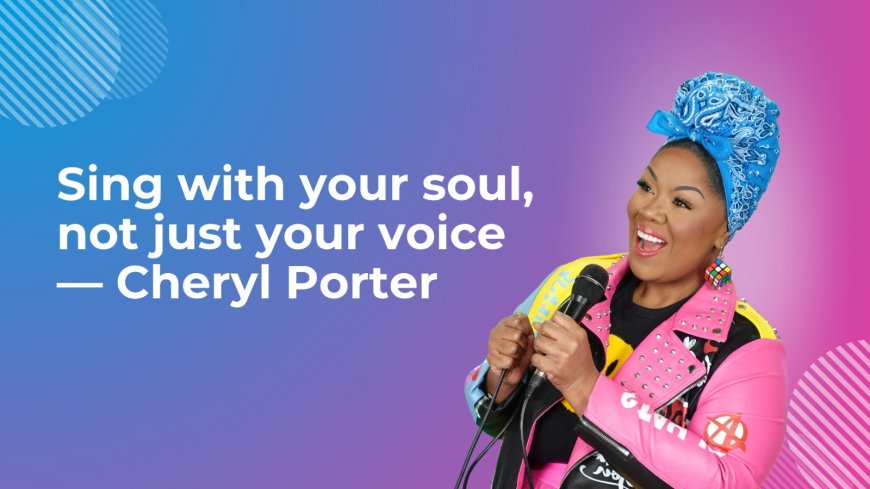You’re Not Tone-Deaf You Just Haven’t Learned to Sing Yet
Think you're tone-deaf? You’re probably not. Here’s how to learn singing from scratch, even if you think you can’t carry a tune.

One of the most common things beginners say is, Im probably tone-deaf. That single thought stops thousands of people from ever trying to sing.
Heres the truth: actual tone-deafness is extremely rare. What most people experience isnt tone-deafness its unfamiliarity. If no ones shown you how to listen, match pitch, and train your voice, of course itll feel like you cant sing.
The good news? You can absolutely learn singing from scratch. You dont need natural talent or perfect pitch just some guidance, patience, and a way to start.
Why So Many People Assume They Cant Sing
There are a few big reasons people believe theyre not meant to sing:
-
They were told once (often as a child) they didnt sound good
-
They cant match pitch yet and assume its permanent
-
They compare themselves to trained professionals
-
Theyve never actually practiced vocal skills intentionally
Think about it: you wouldnt expect yourself to play piano without lessons. So why assume your voice should be performance-ready on day one?
What Singing From Scratch Really Looks Like
Learning to sing from nothing doesnt mean memorizing endless theory. It means starting where you are with your current voice, whatever shape its in and building step by step.
Heres what the process includes:
1. Learning How to Breathe
Singing begins with the breath. Most beginners breathe shallowly from the chest. Learning to breathe from the diaphragm allows your voice to stay stable and full.
2. Training Your Ear
Pitch-matching is a learned skill. By listening to notes and copying them, your brain and voice begin to coordinate. Tools like piano apps or tuning apps can help.
3. Warming Up Properly
Just like stretching before a workout, warmups prevent injury and get your voice ready to work. Lip trills, hums, and scales are great starters.
4. Exploring Your Range
You dont need to sing high or low right away just find where your voice naturally sits. From there, exercises can gently expand your range over time.
Week-by-Week Beginner Plan
If youre not sure how to begin, heres a simple 4-week progression to follow:
Week 1:
-
Practice deep breathing
-
Humming for 510 minutes
-
Sing 1 note, match it to an app or piano
Week 2:
-
Try lip trills from low to high
-
Match notes on a simple 3-note scale
-
Record and listen to your voice (no judgment)
Week 3:
-
Add ng sirens or mum slides
-
Sing along to a very easy song
-
Focus on staying relaxed
Week 4:
-
Try a full warmup routine (breathing + slides + pitch drills)
-
Start learning a favorite chorus
-
Reflect on whats improved
Common Challenges Beginners Face (and How to Handle Them)
I Hate the Sound of My Own Voice
Everyone does at first. We hear ourselves differently inside our heads than on a recording. The more you hear it back, the more you adjust.
I Still Cant Hit Some Notes
Totally normal. Your voice is adjusting. Use slides and sirens to gently approach hard notes instead of attacking them directly.
I Feel Embarrassed Practicing
Try singing quietly in your room, or in the car. The more you do it, the less self-conscious youll feel.
What Progress Actually Feels Like
Dont look for perfection. Look for signs like:
-
Matching pitch more often
-
Feeling less tension when singing
-
Lasting longer on each breath
-
Wanting to sing more often
-
Feeling proud of a tiny breakthrough
These are all wins. Track them. Celebrate them.
A Note on Self-Doubt
The biggest hurdle for most new singers isnt technique its belief.
Singing can bring up insecurity. Maybe you were told you werent musical growing up. Maybe you internalized the idea that some people just cant sing.
Those stories arent true. You can start rewriting them today. All you need is a plan, a few minutes a day, and permission to be a beginner.
Final Thoughts: Give Your Voice a Chance
If youve always wanted to sing, dont let fear stop you from trying. Your voice doesnt need to be perfect to be powerful. It just needs to be used.
No one sounds amazing when theyre first starting but what separates singers from non-singers is one simple thing: they kept going.
Your voice is an instrument. Start playing it, even gently. With time and training, it will surprise you.

































